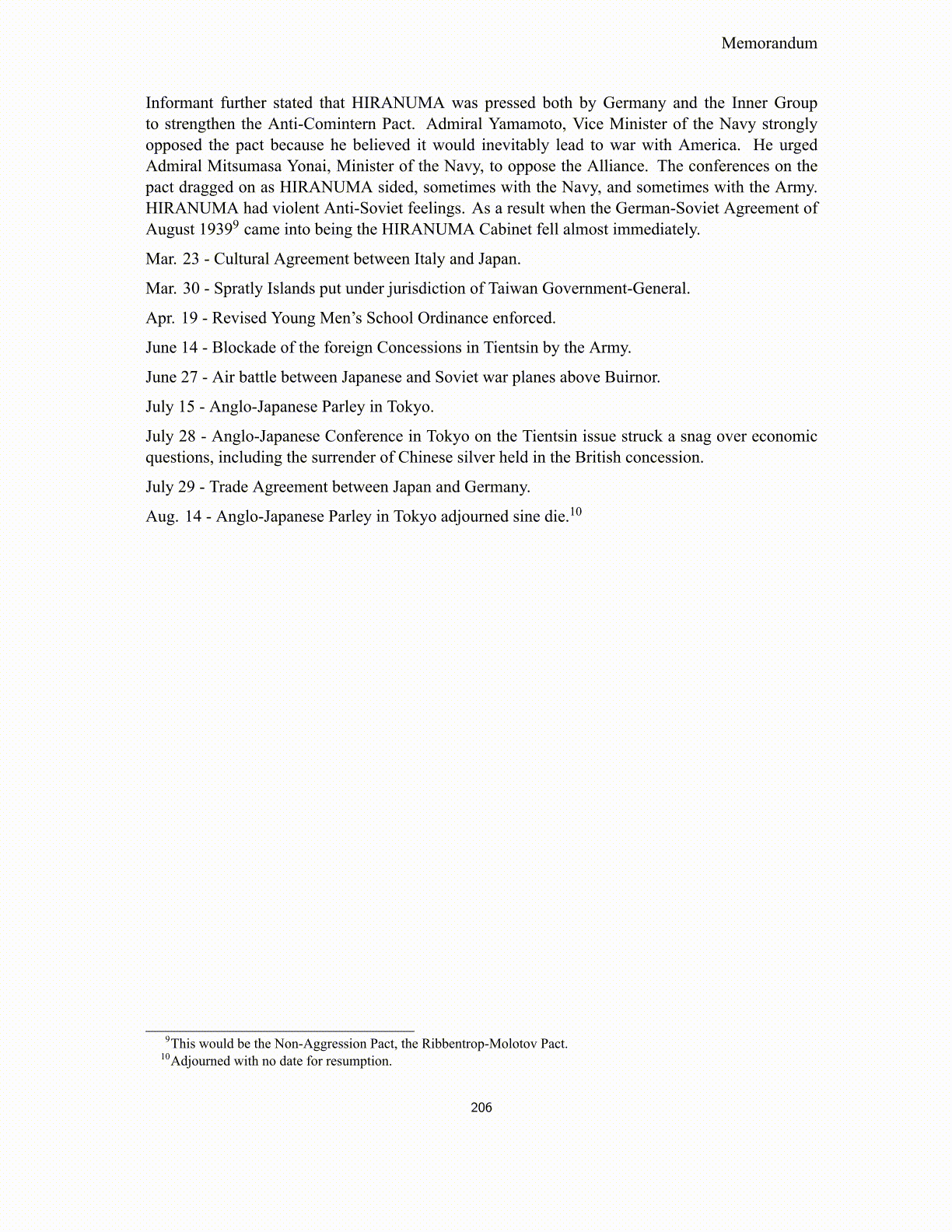
Memorandum Informant further stated that HIRANUMA was pressed both by Germany and the Inner Group to strengthen the Anti-Comintern Pact. Admiral Yamamoto, Vice Minister of the Navy strongly opposed the pact because he believed it would inevitably lead to war with America. He urged Admiral Mitsumasa Yonai, Minister of the Navy, to oppose the Alliance. The conferences on the pact dragged on as HIRANUMA sided, sometimes with the Navy, and sometimes with the Army. HIRANUMA had violent Anti-Soviet feelings. As a result when the German-Soviet Agreement of August 1939 9 came into being the HIRANUMA Cabinet fell almost immediately. Mar. 23 - Cultural Agreement between Italy and Japan. Mar. 30 - Spratly Islands put under jurisdiction of Taiwan Government-General. Apr. 19 - Revised Young Men’s School Ordinance enforced. June 14 - Blockade of the foreign Concessions in Tientsin by the Army. June 27 - Air battle between Japanese and Soviet war planes above Buirnor. July 15 - Anglo-Japanese Parley in Tokyo. July 28 - Anglo-Japanese Conference in Tokyo on the Tientsin issue struck a snag over economic questions, including the surrender of Chinese silver held in the British concession. July 29 - Trade Agreement between Japan and Germany. Aug. 14 - Anglo-Japanese Parley in Tokyo adjourned sine die. 10 9 This would be the Non-Aggression Pact, the Ribbentrop-Molotov Pact. 10 Adjourned with no date for resumption. 206